A company called Dominion Resources wants to extract (or “frack” in different terminology), liquefy, and ship natural Appalachia gas and send it to Japan and India. To accomplish this, Dominion Resources will have to build a power plant right in Calvert County at Cove Point. To buffer the noise from the power plant, the company will have to construct an immensely large–the largest in Calvert County–sound barrier building. To achieve all these industrial feats, Dominion Resources will spend a shocking $3.8 billion. Seems ridiculous and environmentally harmful, right? That’s exactly the sentiment of one green organization trying to call into question this violent fracking and the environmental detriment that comes along with it. The exportation of this gas is especially a topic of concern. Chesapeake Climate Action Network (CCAN) is led by Mike Tidwell and a team across the Maryland and Virginia regions and focuses some of its green power on Annapolis. We caught up with Tidwell, the founder, to learn about the company and what you can do to help with this cause.
CCAN strives to challenge the exportation of natural gas, but also sees the need to fight global warming in Maryland, Virginia, and Washington D.C. In fact, the grassroots non-profit is the first one of its kind. Anyone can join the cause that’s already comprised of 25,000 supporters across Maryland. Everyone from farmers to business people get involved, and you can too, with no strings attached.
– This Dominion Resources dilemma sounds like it will have a serious impact on the environment. Will Annapolis be affected?
“Thankfully, no fracking has been done here in Maryland. However, Governor O’Malley has created a committee to assess regulations on fracking and respond next year. But the point is, if this bill is passed and the power plant goes up in Calvert County, it’s inevitable that it will go across the state,” he explains.
This is a valid point and something we all need to be concerned about. Perhaps you heard about the extremely toxic, undrinkable water found in Pennsylvania? That was caused by fracking for gas. Imagine the impacts fracking and exporting natural gas might have on our well water and prized possession–the beautiful Bay. It’s a scary thought.
In case you’re new to this terminology–fracking–know that the process involves drilling one mile deep, drilling one mile horizontal, filling the ground with pipes, exploding rocks beneath the surface, and then pumping millions of gallons of water through the pipes in order to extract gas from the rocks. Even put in layman’s terms, the process sounds intimidating. “It’s radical!” Tidwell says.
The alternative to fracking is (as you would imagine) much, much less evasive and incredibly better for the environment. “For the same amount of money as the power plant, we could build resources like wind farms that would create jobs and wind power,” Tidwell states.
– Is fighting this proposal how CCAN got its start?
“It started with my own interest in going green. I put solar panels on the roof and started heating my home with organic corn kernels. So it was a matter of converting my own home to green and then I began encouraging others to do it personally and later, in congress,” Tidwell provides.
In 2002, CCAN came to be–just in time to rally behind some of the green bills passed. For instance, the General Assembly passed a clean electricity standard in 2004 and then in 2009, there was a cap put on carbon pollution output.
“Too often,” Tidwell says, “We don’t pause to ask what are the ten ways our legislation can be better with green bills?” This trend of starting on a small, personal level and expanding outward isn’t just something that encouraged Tidwell, but is something that he hopes will inspire change for the good.
“We try to encourage personal responsibility and offer a network to encourage leaders to inspire a clean path for energy,” Tidwell explains.
– The exportation of natural gas is clearly a hot topic and something CCAN publicly opposes. What are some other goals of the company?
“Well, we hope to convey that we have an obligation to ourselves and to future generations to get off fossil fuels and make clean energy happen. The key is getting informed and taking action,” he says.
“That a peaceful, sustainable healthy Maryland is possible through clean energy,” is what undergirds this above goal (Tidwell).
– How can Annapolis people get involved?
There are several ways to get involved and educate yourself on global warming, fracking, and more: volunteering, joining the CCAN network, writing a letter to the governor, and attending informative events (many found on Annapolis Green’s site) are all suggestions from Tidwell. Note that these are all free and can take up as much of your time as you allow.
CCAN’s connection to Ananpolis is clearly visible. CCAN and its supporters focus on the State House in the hopes to change legislature here in Maryland. Additionally, this past Tuesday, Tidwell presented a talk about fracking and getting involved at Broadneck High School in Annapolis. This marked the first stop of a state-wide green tour CCAN is taking. The next stop of this “Crossroads Tour” is Baltimore, and after that, Salisbury, Frederick, College Park, then Cumberland. The website calendar has more about these featured events and how to join the network.
At the Tuesday tour stop, Tidwell recognized some people in Annapolis who are doing great things to inspire the community to action. Elvia Thompson, of Annapolis Green, and Ted Weber, an Annapolis area activist, were applauded for their going green attitude that encourages others.
By this point, you should gather that fracking–especially the exportation of natural gas–is harmful but getting involved is beneficial. It’s easy to learn more, become a supporter, and attend CCAN’s green events and other ones in the area. The Annapolis Green website (linked above) and CCAN’s website provide a wealth of information and resources that will hopefully lead you to action. How will you help the environment and in turn, help future generations today?


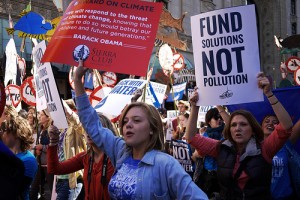
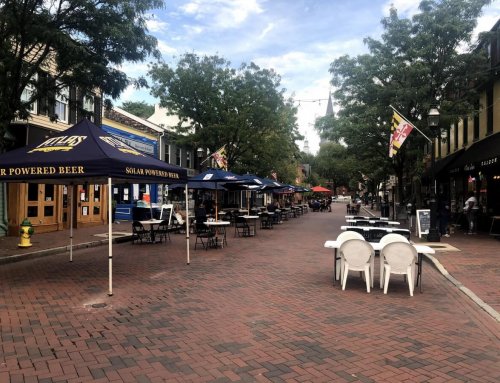
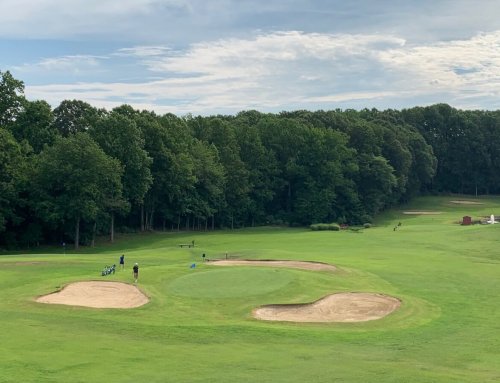

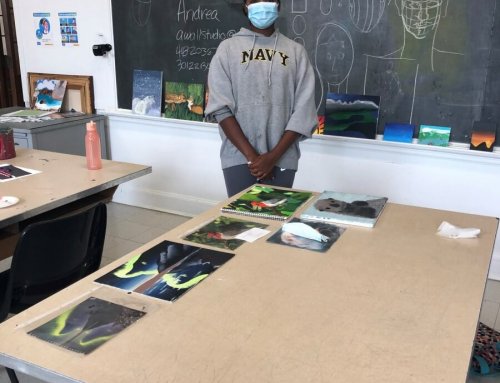
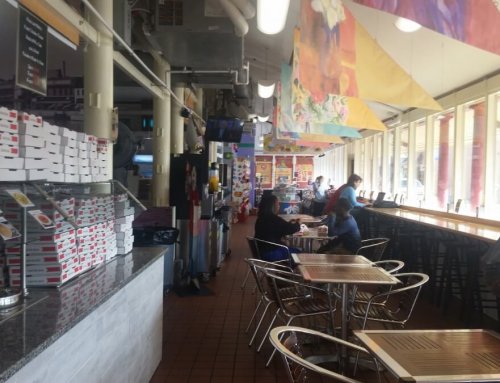
Leave A Comment